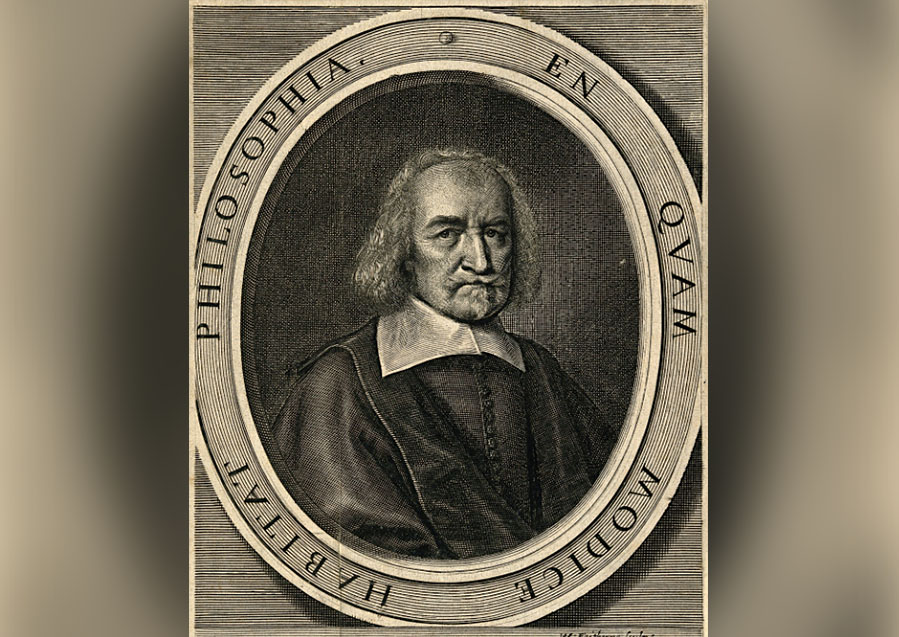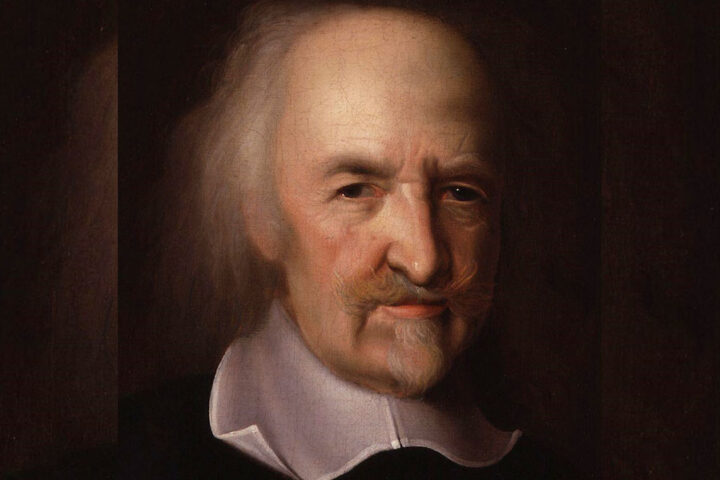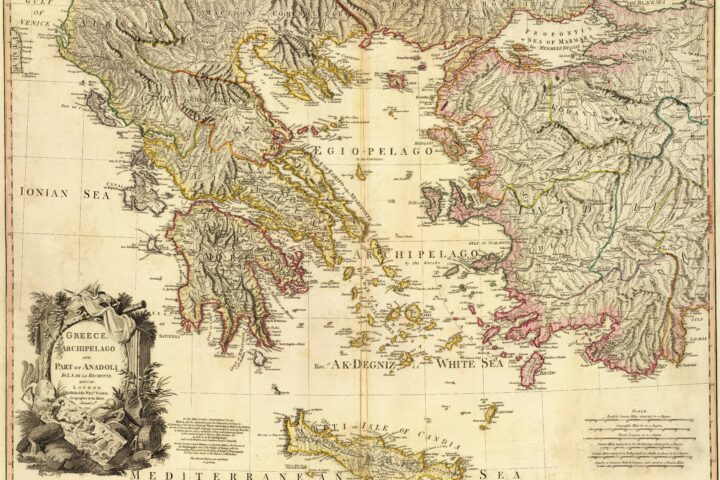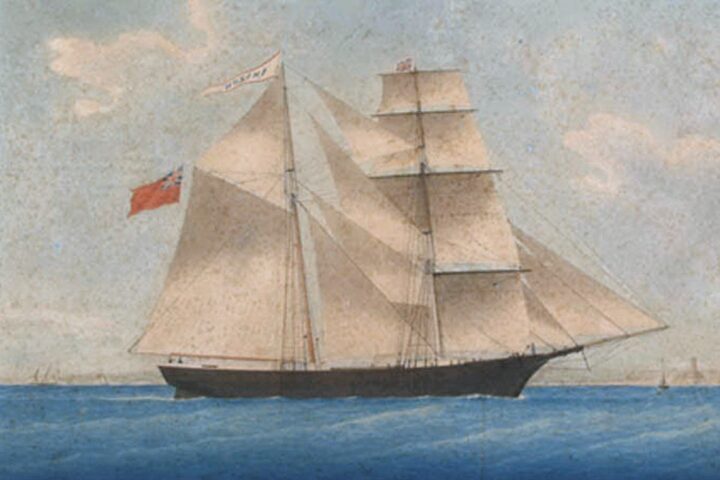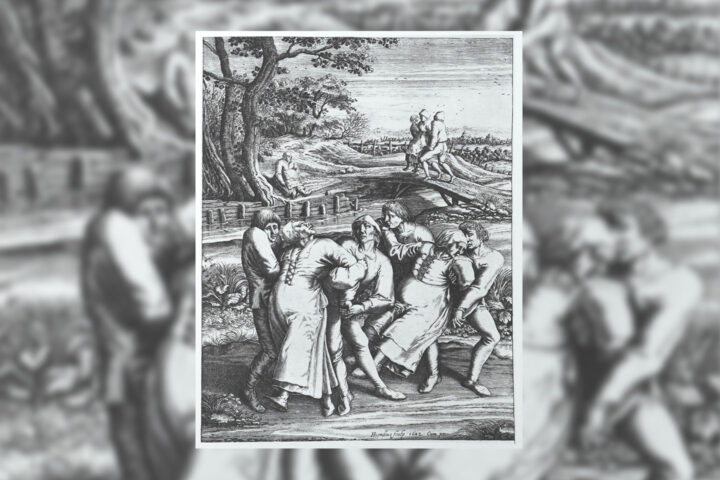Source: A 1668 engraving of the English philosopher Thomas Hobbes (1588-1679). Engraving by William
Introduction
John Rawls is one of the main figures in the political philosophy of the 20th century, and by many accounts, he stands as one of the most influential thinkers on the subject of justice. He created his most prominent work, “A Theory of Justice,” which provided a striking case for a theory of justice that prioritizes fairness and equality. So much attention was paid to his work, but at the same time, another critical component of Rawls’ philosophy remains largely overlooked, namely, his theory of social contract.
This article delves into the intricacies of Rawls’ social contract theory, unravelling the sophistication that he engineered within its key concepts and providing comparative analysis with traditional theories on social contracts and probing into its implications for contemporary political discourse. Understanding Rawls’ social contract theory will prove to be a very valuable source in the sense of understanding what bases would lead to forming a just society.
The Original Position and the Veil of Ignorance
Original Position” is the central point of Rawls’ theory of social contract. That is a hypothetical condition in which, unaware of the society and economic status of each one, citizens may select the principles for their society. And in such ignorance, Rawls argues that individuals would want to make choices that are fair and just because they do not know if they will win or lose in consideration of such principles.
To make the people in the original position really impartial, Rawls introduced the “veil of ignorance.” The veil of ignorance prevents them from knowing their own talents, abilities, social class, or even their conception of the good. Because these are obscured factors, the veil of ignorance makes people consider what principles should be followed to maximize the fairness for every individual, regardless of the overall circumstances.
The Two Principles of Justice
Rawls argues that people in the original position would prefer two principles guiding their society:
- Equal Basic Liberties: Every equal person is to have an equal right to the maximally extensive basic liberties compatible with similar liberties for others. This principle ensures fundamental rights and freedoms for all such as freedom of speech, freedom of assembly, and a right to vote.
- Principle of Fairness: Economic and social inequalities are to be so arranged that they are to each (a) relieve the principle of difference, in particular, to relieve it in ways that benefit those who are less well off; and (b) attached to offices and positions so open to all under fair equality of opportunity. This principle seeks to address the contradictions of society by enabling every citizen an equal chance to compete or win by fair means irrespective of their social or economic status.
The difference principle stands out especially in this regard. It postulates that inequalities are only justifiable if they maximize the position of the least advantaged members of society. Unlike most traditional conceptions of utilitarianism, which is geared toward serving the greater good for the greatest number even at the expense of the rights and interests of the minority, this principle focuses on the least advantaged.
Comparison with Traditional Social Contract Theories
Rawls’ social contract theory is far removed from traditional social contract theories developed by Hobbes, Locke, and Rousseau. In the classic works, previous authors are much more concerned with the state of nature and how to escape it via a social contract. With Rawls, however, it is the original position from which principles of justice must emerge.
Rawls’ theory is interesting for the call to justice and equality instead of individual rights or order-preservation. The two principles of justice that were formed by Rawls consist of his ideas concerning fairness, since it regards people’s good to the least advantaged and tries to give equal chances for all individuals to succeed.
Implication to Contemporary Political Discourse
Rawls’ theory of the social contract has influenced modern political discourse. The debates over distributive justice, social equality, and the role of government are notable areas that have been affected by his ideas. One good example is how the principle of difference is being used to justify progressive taxation and welfare programs that seek to minimize inequality.
Rawls’ theory has opposed conventional thinking about individual rights and liberties further. His proposal that social justice and the well-being of the least well-off must be paramount at times supplants ideals of individual rights.
Critiques and Obstacles
Despite many of its strengths, Rawls’ social contract theory remains vulnerable to criticisms. Of course, some ask if the concept of the original position is unrealistic and whether people under such circumstances would naturally be likely to choose what Rawls propounds. Other criticisms hold that, on the whole, Rawls’ theory does not address issues of gender, race, and other kinds of social inequality well enough.
Additionally, certain liberals have doubted the compatibility of Rawls’ theory with some liberal values, including individual autonomy or the right to follow one’s own conception of the good. There may be conflicting elements with these values versus the principles of fairness and equality preached by Rawls. Rawls’ Theory and the Liberal Tradition
Thus, despite being generally placed within the liberal tradition, Rawls presses challenges against the traditional liberal orthodoxy in several important ways. Liberalism, after all, is the political ideology that stresses individual rights, personal liberty, and limited state intervention. Rawls would like us to believe, however, that individualistic values are at times subservient to the cause of social justice and well-being of the least well-off.
For example, Rawls’ difference theory suggests that inequality is only acceptable if it is essential for the better good of the least well-off in society. One would intuitively understand that there is a need to bind individual wealth and success so that everybody would have a fair chance to be free in their pursuit. Moreover, Rawls’s influence through social justice and common good sometimes demands the necessity of the intervention of the government to address the inequalities so that everybody’s basic needs can be met.
Critics of Liberalism and Rawls
Rawls’ theory has also faced some criticism by the thinkers who believe that it does not go enough in shaking off the old liberal values. According to some critics, the Rawlsian approach that puts emphasis upon fairness and equality is not sufficient to cure the deep-rooted injustices that exist in society. They say that there is a far more radical critique of liberalism that is required in order to obtain a system of social justice.
For example, feminist scholars have criticized Rawls for his failure to address the issue of gender inequality adequately. According to them, his ideas seem too individualistic regarding rights and freedoms and might systematically overlook how women in society have been disadvantaged. Similarly, other scholars have argued that Rawls’ theory has failed to account for the legacies of colonialism and racism in defining lives in marginalized communities.
Rawls’ Theory in the Modern Era
Rawls’ social contract is very relevant to contemporary political rhetoric. His ideas continue to appear in scholarly and policy-making debates at many places around the world. At our time of grappling with inequality, social justice, and the role of government, Rawls’ theory provides a stimulus for perspective.
The most critical challenge for human societies at the moment is climate change. Based on this, the theory by Rawls can be applied to this issue through consideration of how climate change may either burden or benefit different groups in society. For example, climate change is likely to hit more marginalized and disfavored members of society – such as low-lying coastal dwellers or developing countries. Hence, from the principle of difference by Rawls, policies to combat the result of climate change would help those on whom the impact of the issue falls most seriously .
Populism and nationalism is one other issue relevant to Rawls’ theory. Populism and nationalism often derail liberal values such as individual rights and international cooperation. These trends can be countered using Rawls’ theory, which stresses fairness, equality, and common good. Rawls’ theory can help serve as a bridge by emphasizing the sense of common citizenship and social solidarity.
Conclusion
John Rawls’ social contract theory is a highly complex and nuanced work on political philosophy. Despite the criticism it has received from so many, it remains a good resource in understanding the bases of a just society. Rawls’ ideas are a very important input in all the efforts to grasp most of the challenges we face today in attempting to envision a more perfect, fair, and equal society beneficial to all. Thus, learning of Rawls’ theory will undoubtedly give one a better insight into the difficulty to build a just and fair world.
Sources:

